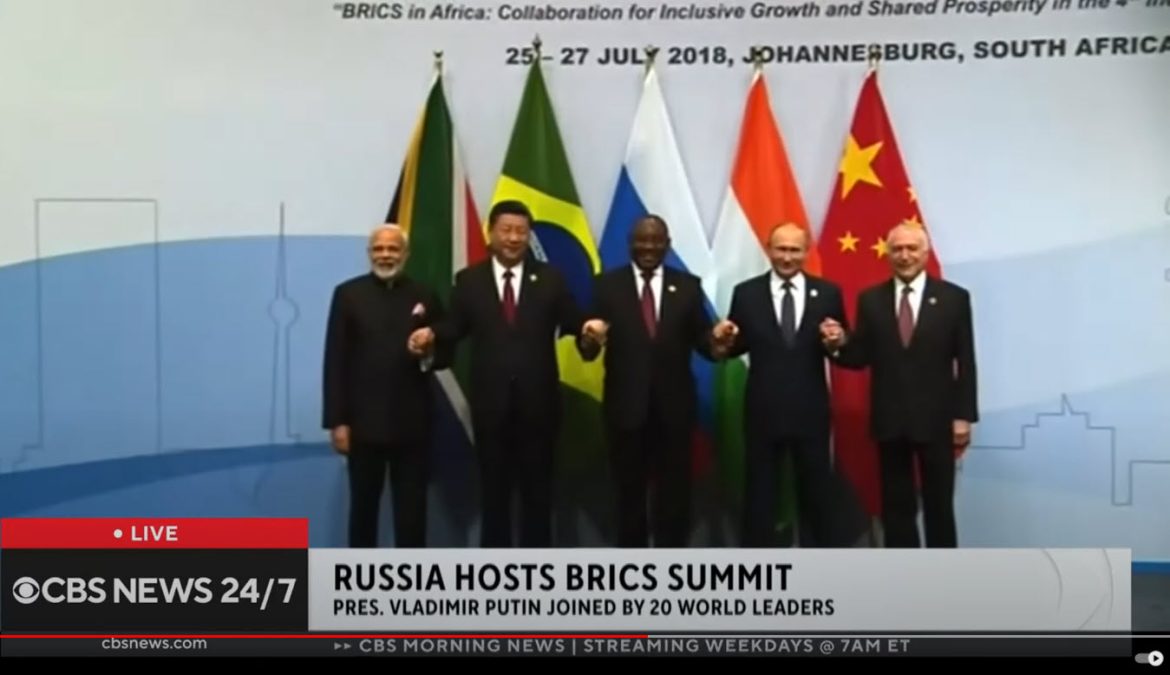Despite facing a barrage of international sanctions and an arrest warrant stemming from the war in Ukraine, Russian President Vladimir Putin is hosting the 2024 BRICS Summit, welcoming world leaders from Brazil, Russia, India, China, and South Africa to Kazan. The summit marks a significant moment for the BRICS bloc, which now represents 45% of the global population and 35% of the world’s economic output, positioning it as a critical player in global economic discussions.
This year’s summit is seen as a key geopolitical event, highlighting Russia’s efforts to strengthen its alliances amid growing isolation from Western powers. Putin’s ability to convene the leaders of some of the world’s most influential emerging economies—despite his international legal troubles—underscores the importance of BRICS as a counterbalance to Western-led institutions such as the G7.
Among the prominent attendees are Chinese President Xi Jinping and Indian Prime Minister Narendra Modi, both of whom engaged in high-level discussions with Putin. Notably, Modi expressed India’s willingness to assist in mediating the ongoing Russia-Ukraine conflict, calling for dialogue and cooperation. “India is ready to contribute to a peaceful resolution,” Modi told Putin during their meeting, emphasizing the need for diplomacy in resolving the crisis.
The summit has placed a spotlight on how Russia, despite being under severe economic pressure from Western sanctions, continues to cultivate relationships with BRICS nations that have largely refrained from publicly criticizing Russia’s actions in Ukraine. Instead, these countries have pursued their own economic and geopolitical agendas, focusing on trade, development, and cooperation within the BRICS framework.
For China and India, the BRICS Summit serves as an opportunity to solidify their positions as global economic powerhouses. China’s Xi Jinping, in particular, has used the summit to push for greater BRICS cooperation in areas such as technology and finance, aligning with Beijing’s broader goal of expanding its global influence. India, meanwhile, has presented itself as a potential peace broker in the Ukraine conflict while championing multilateralism as a way to address global challenges.
The BRICS bloc has emerged as an increasingly important coalition of nations seeking to reshape the global economic order. With ongoing discussions about expanding the group and creating alternative financial structures that could lessen dependence on Western-led systems such as the U.S. dollar, the summit in Kazan reflects the group’s ambitions to challenge the dominance of traditional Western institutions.
Putin, for his part, has used the summit to showcase Russia’s resilience in the face of economic isolation. The Russian president expressed his gratitude to the BRICS nations for maintaining economic ties and continuing to support Russian trade. Putin’s government has been keen to shift focus toward partnerships with non-Western nations, and the BRICS summit plays a crucial role in achieving this goal.
As the 2024 BRICS Summit concludes, the outcomes from the discussions in Kazan are expected to shape the geopolitical landscape, particularly in how the group navigates its growing economic clout and the ongoing global tensions, including the conflict in Ukraine.



